
How We Treat the Flu in Our Kids Naturally
I’m writing this post during a special moment—we’ve just recovered from the flu, and for me, it was the hardest one I’ve ever experienced. As usual, our children handled it much better. Their illness lasted only two days, during which they slept a lot and had a mild fever.
My eldest son is now four years old and has never taken any medication, while my younger son has had antibiotics only once. From the beginning, we have chosen to treat them naturally, using herbs, homeopathy, vitamins, and a health-supporting diet.
When I was a child, every infection meant antibiotics and syrups from the doctor, along with sweets from family members to make the illness more bearable. Back then, we didn’t have access to the kind of knowledge we do today.
Our approach to children’s health is quite different now. If you’re wondering what we do when flu symptoms appear, over the years, we have developed an effective routine that we follow every time we notice the first signs of illness.
It’s not that we never visit doctors. If our child’s condition doesn’t improve within a few days, we see our family doctor for an examination. Usually, no medication is prescribed because the approach to flu in the UK differs from that in Poland. Doctors here generally recommend paracetamol (which we don’t use, and you can find out why in my post). While this may seem strange to some, it actually makes sense. In the UK, the prevailing belief is that the body should fight off the illness on its own, except in severe cases where antibiotics are necessary.
So, if your child is seriously ill, consulting a doctor or naturopath is always a good idea. But if you’re looking for natural ways to support the body in fighting an infection, I invite you to read my post. Here are our go-to remedies for boosting immunity during the flu:
Freshly Squeezed Juices

As soon as illness strikes, I bring out the juicer! I don’t use it daily because cleaning all the parts can be an extra chore, but during sickness, it’s a lifesaver. Often, kids lose their appetite, which is completely normal, as their bodies focus on healing rather than digestion. That’s why it’s crucial to give them nutrient-rich, fresh juices packed with live enzymes. What child wouldn’t love sweet carrot and orange juice? Carrots are loaded with vitamin A, and oranges provide vitamin C—this duo is our secret weapon against infections. I serve this juice throughout the day until they recover.
Bone broth based soups
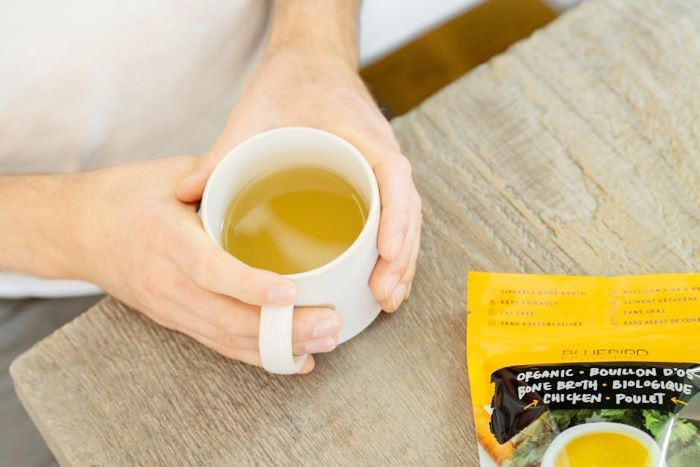
Bone broth is an exceptional soup because it provides essential minerals to support the body in fighting illness. It’s incredibly nourishing and restorative, especially when made from high-quality meat and bones. Organic chicken drumsticks, perfect for broth, are available at Asda and Waitrose. The latter also sells marrow bones from grass-fed cows.
It’s a great idea to keep a portion or two of broth in the freezer in case the flu hits suddenly and you lack the strength to cook. In such moments, ready-made broth is a true blessing, packed with valuable nutrients that support the body in fighting illness and speeding up recovery.
Elderberry Syrup
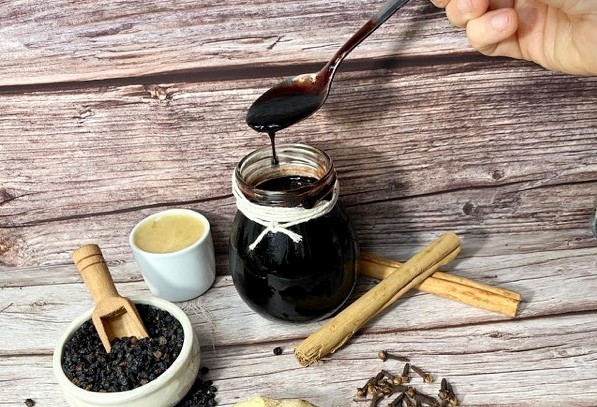
If you’ve read my previous post about @Patrick Holford’s book Flu Fighters, you know how effective elderberry syrup can be. We give it to our kids several times a day, often using a syringe to avoid spills—elderberry stains are tough to remove!
A 2018 PubMed study states:
📝 “Elderberry supplementation significantly reduced symptoms of upper respiratory infections, showing a strong effect. The findings suggest that elderberry may be an alternative to the overuse of antibiotics for viral infections and a safer option than prescription medications for treating colds and flu. It also demonstrates antiviral effects against influenza and herpes viruses.”
In another study, participants took 15 ml of elderberry syrup or a placebo four times a day for five days and recorded their symptoms. Those taking elderberry recovered about four days faster on average and required fewer additional medications compared to the placebo group.
You can make elderberry syrup yourself in the fall or buy it at a herbal store. Unfortunately, many store-bought syrups contain large amounts of sugar, so I recommend making it yourself from dried elderberries if you missed the fresh harvest. You can find my recipe here. You can also freeze it for later use.
Vitamin C
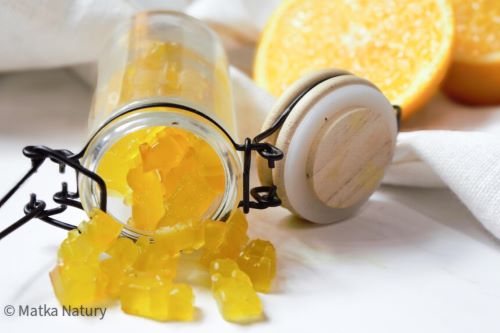
Vitamin C is essential during any viral illness. When I was a child, I was given just one tablet of vitamin C a day, but research shows that we need much more. A 2013 study found that a daily dose of 1-2 grams of vitamin C reduced the duration of colds in children by 18%. It also helped alleviate symptoms.
A fascinating clinical case describes a 25-year-old forensic psychologist who caught the flu while vacationing in Orlando. Initially, he tried to continue his activities, but after a week, he was so weak that he couldn’t get out of bed for five days. He lost 7 kg (15 lbs), and every attempt to move triggered fever, headaches, and muscle pain.
Blood tests were normal, but a rapid flu test was positive. The patient received intravenous vitamin C (50 g in 1000 ml of fluid) over 1.5 hours. Three such infusions were administered over three days.
Results:
- After the first infusion, he felt significantly stronger, and his headache disappeared.
- After the second, his appetite returned.
- By the fourth day, he felt completely recovered.
This case is described on the website of the International Society for Orthomolecular Medicine (ISOM).
We personally don’t use IV vitamin C. Instead, we make homemade vitamin C gummies for our children when they are sick. They can eat as many as they want – it’s our way of ensuring they get enough vitamin C naturally. You can find my recipe here.
Vitamin D
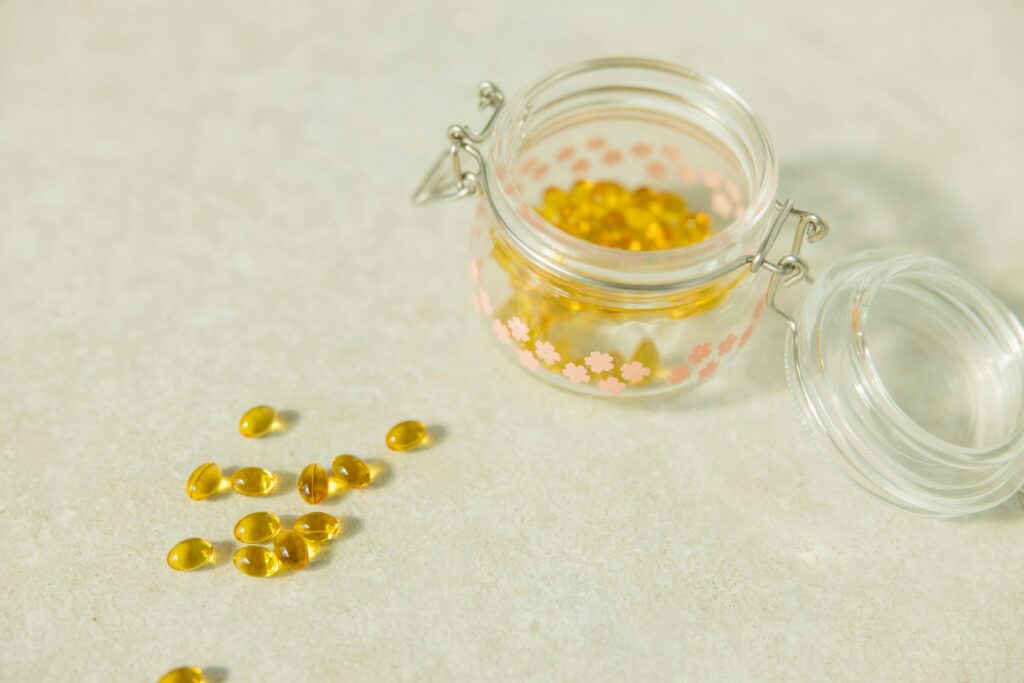
We already know a lot about vitamin D, especially its role in immunity. It’s essential, particularly in winter, and its deficiency is linked to a higher risk of flu and other infections.
We supplement vitamin D all winter, but during illness, we increase the dosage. A 2024 PubMed study involving nearly 6,000 children (ages 0-5) found that daily vitamin D supplementation above 1,000 IU reduced the risk of flu and colds by 57%.
Zinc
Clinical data shows that zinc can shorten the duration and ease the symptoms of colds if taken within 24 hours of onset. Zinc is crucial for our immune system – it supports T cells that fight viruses. A deficiency can weaken immunity, making us more susceptible to infections, including the flu. We usually add zinc to freshly squeezed juices, as this is the only way we can get our kids to take it.
Belladonna for fever
We’re not afraid of fever in our home, as long as it doesn’t exceed 39.5°C (103°F), since it helps fight viruses. When it goes above 39°C (102°F), we give Belladonna 30C – a homeopathic remedy available in UK health stores. I can’t fully explain how it works, as I’m not a homeopath, but I can assure you it’s effective and works better than paracetamol without side effects.
Our Most Valuable Book
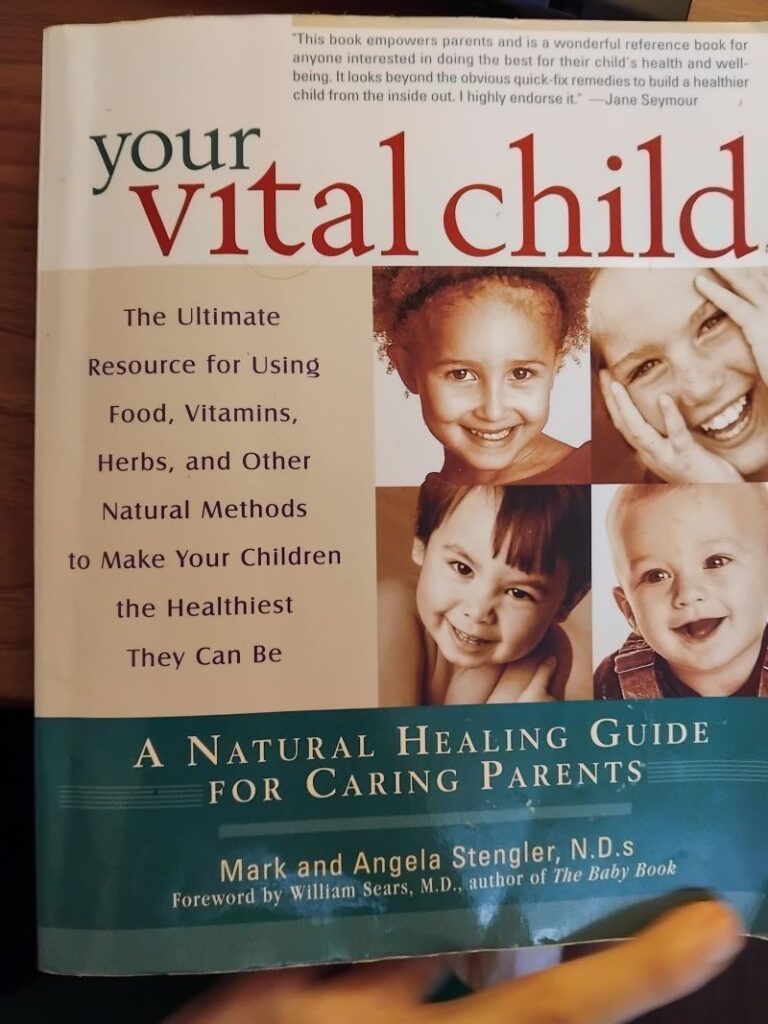
I don’t remember how this book found its way to me, but it’s absolutely irreplaceable. Written by naturopaths from the U.S., it offers remedies for almost every childhood illness, with specific dosages and recommendations that always work for us. It’s hard to find in Europe – often, you have to order it from the U.S. and wait three weeks. I was lucky to find it on eBay for a bargain, and it sometimes appears on Amazon.
And you? What are your best flu remedies for children? Share them in the comments – I’d love to hear your experiences!




